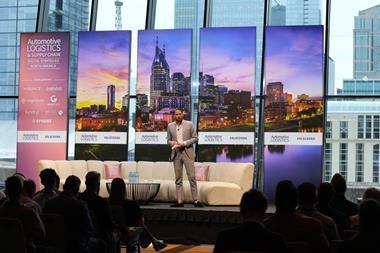 Electric vehicle producer Tesla has agreed to acquire Grohmann Engineering, an automated manufacturing specialist, for an undisclosed sum.
Electric vehicle producer Tesla has agreed to acquire Grohmann Engineering, an automated manufacturing specialist, for an undisclosed sum.
Located in Prüm, Germany, Grohmann will be renamed Tesla Grohmann Automation and is expected to design and produce several critical elements of Tesla’s automated manufacturing systems, as the electric car company targets production of 500,000 cars per year by 2018.
Tesla operates the Fremont manufacturing facility in California and the Gigafactory battery manufacturing plant in Nevada, and last year acquired Riviera Tool in Michigan, its supplier of tools and dies used for stamping.
“As the machine that builds the machine, our factories are so important that we believe they will ultimately deserve an order of magnitude more attention in engineering than what they produce,” said Tesla in a post on its website.
“Combined with our California and Michigan engineering facilities, as well as other locations to follow, we believe the result will yield exponential improvements in the speed and quality of production, while substantially reducing the capital expenditures required per vehicle.”
Earlier this year, Tesla conceded that its production plans would be hard to deliver on unless it managed to add manufacturing capacity and bolster its supply chain arrangements. It admitted it had no experience in manufacturing vehicles at the volumes required to deliver on its production plans and that it was heavily dependent on single-source suppliers, many of whom it had no long-term arrangements with.
Led by its founder and CEO Klaus Grohmann, Tesla Grohmann Automation will add more than 1,000 advanced engineering and skilled technician jobs in Germany over the next two years.
The Fremont factory, which Tesla purchased in 2010, is currently capable of producing more than 100,000 vehicles annually.
“To date, we have increased the production rate at our Fremont Factory by 400% in four years, and we expect this acquisition to accelerate that growth rate,” Tesla stated on its website.
Under its previous owners, General Motors and Toyota, its production peaked at 500,000 cars annually.
Tesla’s affordable Model 3 vehicle is expected to go on sale next year, with preorders already topping 400,000 units.
For more on Tesla’s production and supply chain arrangements, see Tesla’s supply chain set for a surge.





































